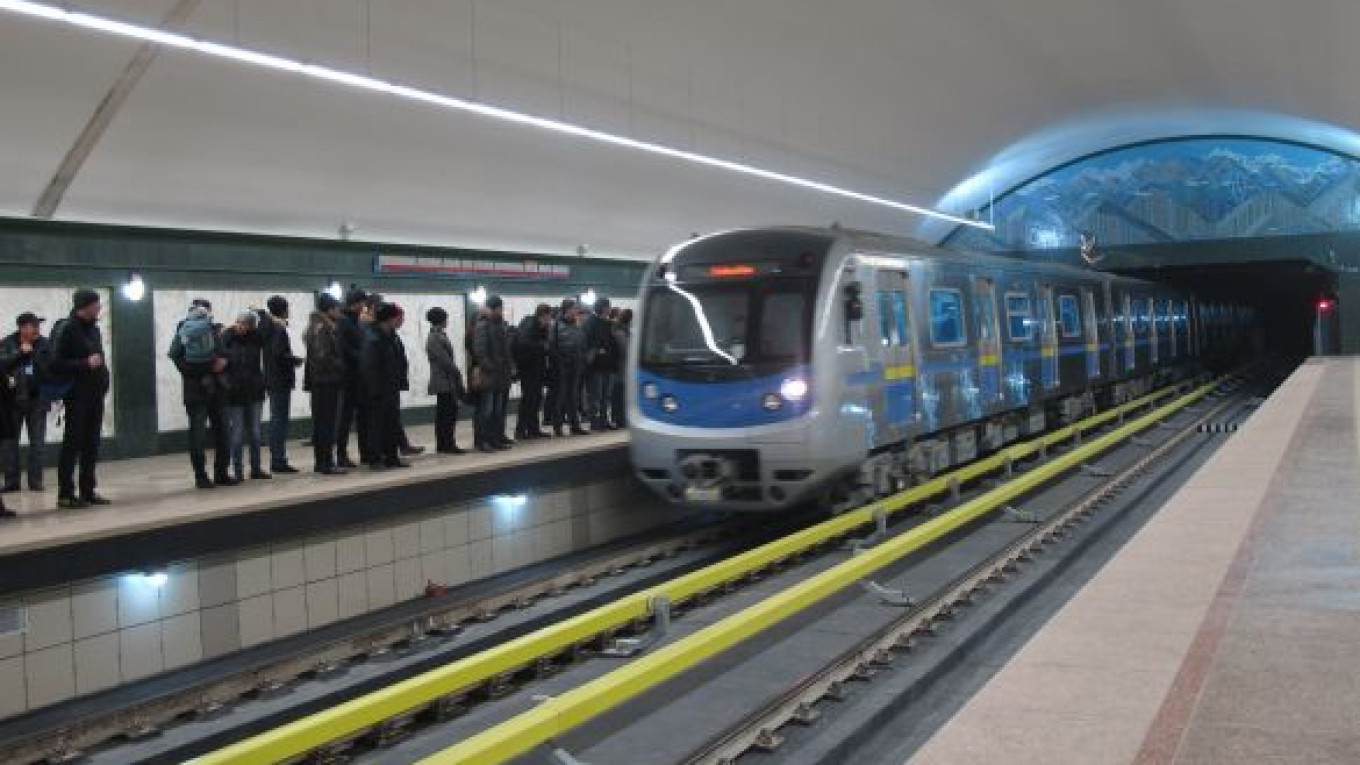ALMATY — Kazakhstan launched the first metro system built in Central Asia since the collapse of the Soviet Union, a $1.1 billion project in its earthquake-prone commercial capital Almaty.
President Nursultan Nazarbayev, who has run his vast steppe country since before independence 20 years ago, was among the first to ride the underground line across the center of Kazakhstan's largest city, home to 1.5 million people.
"The stations are a work of art," he told construction workers and reporters inside the marble and granite-clad metro at the opening late last week.
"All safety measures have been taken here against any earthquakes and other emergencies," he added.
A powerful earthquake almost obliterated the city — then called Verny — in 1887 and a strong, 5.4-magnitute earthquake rocked Almaty's houses and shook windows in May this year, leaving no damage or casualties.
"I will use [the metro]," said Zulfia, a 54-year-old Almaty resident among the first passengers. "It's scary, but what can I do? Things happen up there on the ground as well."
Nazarbayev, who brooks no opposition in his oil-producing nation of 16.6 million, has put in place market reforms that have helped Kazakhstan's economy become the largest in Central Asia. Construction of the metro was funded wholly by the state.
The Almaty metro project began in 1988 on the orders of the Kremlin, when the population of Kazakhstan's then-capital surpassed the 1 million threshold that demanded a Soviet city be awarded an underground system.
The collapse of the Soviet Union in 1991 halted work, leaving the metro in Tashkent, capital of next-door Uzbekistan, as the only underground rapid-transit system in vast and resource-rich Central Asia.
After being frozen throughout most of the 1990s, the project resumed in stages during the last decade.
The 8.6-kilometer first line has seven stations, reinforced by pillars and roof supports to withstand earthquake tremors.
Moscow has the oldest and longest metro in the former Soviet Union. St. Petersburg and several other Russian cities also run Soviet-era metro systems, as well as several other major former Soviet cities, including Kiev, Minsk, Baku, Yerevan and Tbilisi.
A Message from The Moscow Times:
Dear readers,
We are facing unprecedented challenges. Russia's Prosecutor General's Office has designated The Moscow Times as an "undesirable" organization, criminalizing our work and putting our staff at risk of prosecution. This follows our earlier unjust labeling as a "foreign agent."
These actions are direct attempts to silence independent journalism in Russia. The authorities claim our work "discredits the decisions of the Russian leadership." We see things differently: we strive to provide accurate, unbiased reporting on Russia.
We, the journalists of The Moscow Times, refuse to be silenced. But to continue our work, we need your help.
Your support, no matter how small, makes a world of difference. If you can, please support us monthly starting from just $2. It's quick to set up, and every contribution makes a significant impact.
By supporting The Moscow Times, you're defending open, independent journalism in the face of repression. Thank you for standing with us.
Remind me later.


